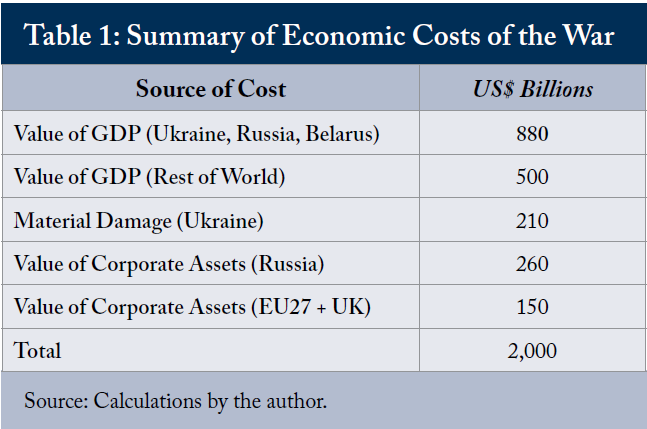Only a little more than six months after the symbolic photo of a US helicopter evacuating US embassy staff out of Kabul was taken, Russia invaded Ukraine. This came hot on the heels of an accord between China and Russia that recognized each other’s respective “interests” in Taiwan and (implicitly) Ukraine. Russia's invasion of Ukraine represents an extinction-level event for the incumbent world order as one commentary after the other opines: “everything has changed."
The short-term costs of the invasion may be tabulated in the trillions of dollars, with no offsetting benefits for any of the parties. The longer-term dynamic costs add considerably to the negative total. International economic relations are heavily influenced by security relationships. The invasion has triggered the descent of a new Iron Curtain between Russia and the rest of Europe and increased perception of risk in trade and investment across security divides.
Trade will be less multilateral and more regional – including in the digital domain, where the lessons learned from the role of social media in preparing the ground for the war and influencing its progress will be translated into regulation.
The international institutions created during the era of US hegemony will need to be reformed, repurposed, or replaced as they simply no longer seem to be fit for purpose – neither for the technological conditions of the 21st Century economy, which incentivize a new “Great Game,” nor for the geopolitical realities of the post-US hegemonic era, which have unleashed the anachronistic old “Great Game” now unfolding in Ukraine. To the economic costs may be added the damage to global cooperation.



